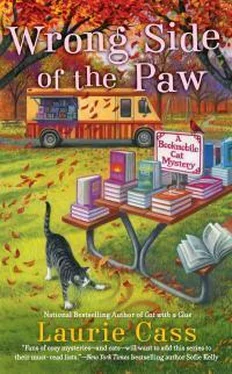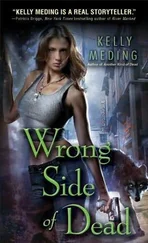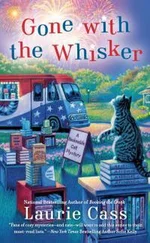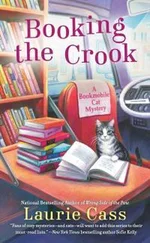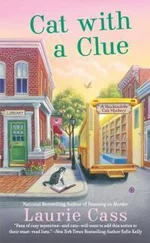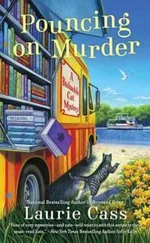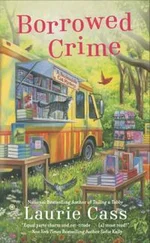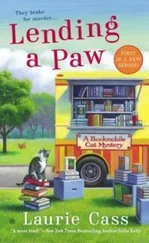“I can drive you home, you know.”
“No, I’ll be fine.” He smiled. “Back to your question. Animal, vegetable, or mineral?”
“You two are up bright and early.” Sabrina, the restaurant’s forever waitress, put down two water glasses. “Coffee coming up for Minnie. How about you, Ash?”
“Decaf,” he said sadly.
“Working night shift again?” She took an order pad from her apron and pulled a pen from her graying bun of hair. “Then you’ll want the oatmeal with dried cherries and walnuts. Single biscuit on the side with gravy?” He nodded and she wrote. “The usual for you, Minnie?”
I almost said yes. “No. Let’s try something different. Your pick.”
“Oatmeal pancakes with cherry pecan sausages for Miss Minnie.” She slid the pad back into her pocket. “Back in a jiffy with the coffees.”
“That’s it,” I said, tipping my head after the retreating Sabrina. “My question. When does a woman stop getting called ‘miss’ and turn into a ‘ma’am’? Is it when she starts getting gray hair? Is it when she starts paying more attention to comfort than fashion? Is it when she has children? Grandchildren? Where’s the line?”
He laughed, showing the dimples in his cheeks. “You’re making this more complicated than it is.”
It wouldn’t be the first time I’d done so and undoubtedly wouldn’t be the last. “Explain, please.”
“What really matters,” he said, “is the age of the people involved. If the woman is older than you, she’s a ma’am. If she’s younger than you, she’s a miss.”
“That’s it?”
He nodded.
“That’s pretty simple.” I thought of a possible complication. “Are you sure that’s a universal truth? I mean, maybe that’s just the Wolverson Theory.”
“Nope,” he said. “Guys talk about this stuff all the time. It’s a national consensus.”
I laughed. “Nice try.” Although the image I got of a bunch of cops huddled together in the back corner of a break room, raising their hands and vowing to accept the etiquette of addressing women was a good one, I was old enough to know that men talking about such a thing was more far-fetched than Eddie learning how to say thank you.
Sabrina approached with two steaming mugs. “Here you go,” she said, setting down the mugs. “Your breakfasts are next in line so it won’t be long.”
“How’s Bill these days?” I asked.
For once, the back corner booth was empty of her husband, Bill D’Arcy. He was a newcomer to Chilson, having moved north less than two years ago, and was what you’d kindly call taciturn. Bill spent most of his day hunched over his laptop moving stocks and bonds around the world and making more money than I would have dreamed possible.
He’d established himself as a regular at the Round Table soon after he moved north, and in addition to becoming the love of Sabrina’s life, after his car hit the outside wall of the restaurant, he confessed that he had early-onset macular degeneration.
Sabrina glanced at Bill’s normal seat. “The treatments are doing okay. He’s still losing his sight, but it’s slowed down. Or so the doctors say.”
The muscles in her face shifted and I could tell she was struggling not to cry. Just as I was starting to reach out to touch her hand, to give what comfort I could, she said, “Of course, there’s a bonus to it.” She grinned. “He won’t see me getting old and fat.” Smirking, she slapped her hips with the palms of her hands and headed back to the kitchen.
I wondered whether, if and when the time came, I’d be able to joke about health issues with my future spouse. This led, in a natural way, to picturing Ash and me thirty years from now. But I couldn’t get the image in my head. Not at all.
“Who would have guessed,” Ash said.
“Guessed what?” I wrapped my hands around the ceramic mug, soaking in the warmth, and abandoned my previous line of thought.
“That they seem to be making progress on macular degeneration,” he said. “Twenty years ago, when my grandmother got it, they said there was nothing to be done, that she was going to go blind in a year and that she should make adjustments accordingly.”
I took a long sip of coffee. I’d once heard an interview with a woman who had, for various bizarre reasons, suffered a long bout of temporary but complete deafness, and when she’d recovered from that, had endured a time of temporary but complete blindness. Of the two, she’d said, deafness had been far harder to manage. She’d sounded sincere, a down-to-her bones sincere, but I’d found it hard to believe. After all, if you were deaf, you could still read. There was Braille, sure, and audio books and surely friends and family would read to me if I went blind, but if the ability to wander through the library and pick up a random book ceased, I was afraid I’d be cranky the rest of my life.
“Either one would be hard,” I murmured.
Ash frowned. “Either one what? Either eye? Grannie had it in both.”
Explaining the pathways my thoughts had taken in those two seconds would have been a pointless conversation that might have ended in him learning a bit too much about how my brain worked, so I said, “It’s great they’re making progress with the disease.” Saying that vague, but true, statement reminded me of another topic. “Speaking of progress, is there anything new with the death of Dale Lacombe?”
Ash glanced at his watch. “Twelve minutes.”
“For what?”
He grinned. “For you to ask me about Lacombe. Hal was wrong; he said it would be less than five.”
“Oh, funny hah hah.” I said it sarcastically, but eked out a smile. Detective Hal Inwood and I had met numerous times for a variety of reasons. At first he’d done his best to pat me on the head and tell me to let the grown-ups do their jobs, but eventually he’d come around to realize that I had a brain that could, on occasion, be useful to him and to the sheriff’s office.
“And you know perfectly well I can’t talk about an active investigation.” Ash unrolled the paper napkin wrapped around his silverware. “Not sure why you’re wasting your time asking.”
“But this is different,” I said, doing the same unrolling thing. “You must be able to tell me something. I was there, remember?”
“Nice try.” He spread the napkin across his lap. “Let’s talk about the biking route we’re going to take next time I get a day off.”
“Leese is a mess.” The napkin in my hand crunched up into a ball. “She’s worried that you’re going to arrest her and there’s no way she could have killed her father.”
“Oh?” Ash’s expression went still. “Why do you say that? Were you with her the day before?”
“Well, no. She couldn’t have done it, that’s all.”
Ash looked at me.
“I know, I know,” I said, sighing. “Given the right circumstances, practically everyone can kill. All I’m saying is that Leese wasn’t in those kind of circumstances. That these weren’t them.” A sentence that almost made sense.
“Breakfast for two, hot and hardy.” Sabrina put our plates on top of the paper place mats. “Can I get you two anything else?”
Ash and I both pushed our mugs toward her.
“Birds of a feather.” Sabrina laughed. “Be right back.”
She went to fetch the coffeepots and we looked at each other. I half shrugged an apology, because I really shouldn’t have asked him to divulge anything about the investigation, and we started eating.
But the pancakes tasted a little flat, and the sausage sat in my stomach like an uncomfortable rock. The cause, I was sure, wasn’t the kitchen.
After I waved good-bye to Ash in the diner’s parking lot, I considered the rest of the day.
Читать дальше
